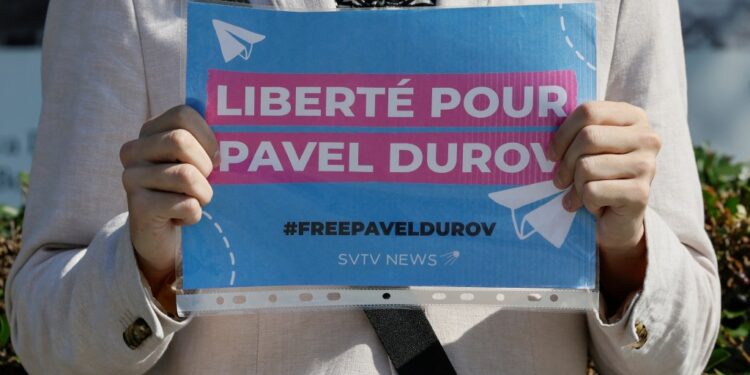The famous Las Vegas tourism slogan asserts that what happens in Vegas, stays in Vegas.
But when it comes to European social media censorship, what happens in Europe doesn’t stay in Europe. Americans should be worried.
The case of Pavel Durov highlights the problem.
The co-founder of social media giant Telegram was detained upon his arrival in France last Saturday.

Durov is being investigated for refusal to cooperate with authorities in restricting the content being posted to Telegram and potentially is being held responsible for the alleged criminal use of the platform, or at least that’s the gist of France’s argument.
No big deal, you say. What does that have to do with us, you ask.
Everything.
The result is the chilling of free speech on a platform used by millions of Americans.
French investigators were quick to assure the public that this was most certainly not a political detention, which means it most certainly was.
Durov is a seasoned veteran in the fight to protect free speech and association.
Just over a decade ago, Durov was given a nasty ultimatum by the Russian government to hand over user data to his version of Facebook or hand over rights to the company and leave the country. Durov chose to leave.
The message was simple — fork over the data of private citizens or face political persecution. We expect this from the Russians, and sadly now the Europeans.
In the US, Telegram is home to many of those who were summarily deplatformed during the massive social media purges during the COVID years and especially following January 6, simply for questioning the status quo. It serves as an outlet for our own censored citizens.
France’s interference with Telegram is not the first European foray into regulating American speech. The EU has been on a mission for years to use its regulations to control American social media and other tech platforms.
The UK’s disturbing crackdown on online memes reached across the pond and into our own online speech, with threats to extradite Americans.
X owner Elon Musk has dealt with similar threats by foreign entities demanding he crack down on his platform, or else.
And it’s no surprise that X is in the crosshairs since it is now the number one platform for political speech in this election season.
What is happening in Europe to restrict online free speech already has reached our shores.
We can expect that European-style censorship will find a welcoming audience in the DC swamp.
Meta CEO Mark Zuckerberg admitted in a letter to the House Judiciary Committee that the Biden administration pressured Facebook to censor COVID-19 content, “including humor and satire,” and that they stifled The New York Post’s coverage of the Hunter Biden laptop due to meddling from the FBI.
For all the fun, memes, and doom scrolling, the major social media platforms do remain magnets for the worst of the worst elements; possibly criminals, terrorists, and traffickers.
But criminals plan and commit crimes using the telephone, too, and governments around the world aren’t locking up the phone companies.
The message of Durov’s detention is simple — hand over the data of the private citizenry, monitor and police their free speech, or face political persecution.
We cannot allow our long-standing freedom of speech and assembly to become subject to European laws or lawmakers. And certainly not to the whims of globalists at the United Nations or in Davos.
Durov is a walking target for refusing to capitulate to the surveillance state. But like Trump famously said, “In the end, they’re not coming after me. They’re coming after you.”
William A. Jacobson is a clinical professor of law at Cornell University and founder of the Equal Protection Project (EqualProtect.org), where Kemberlee Kaye is operations and editorial director.







